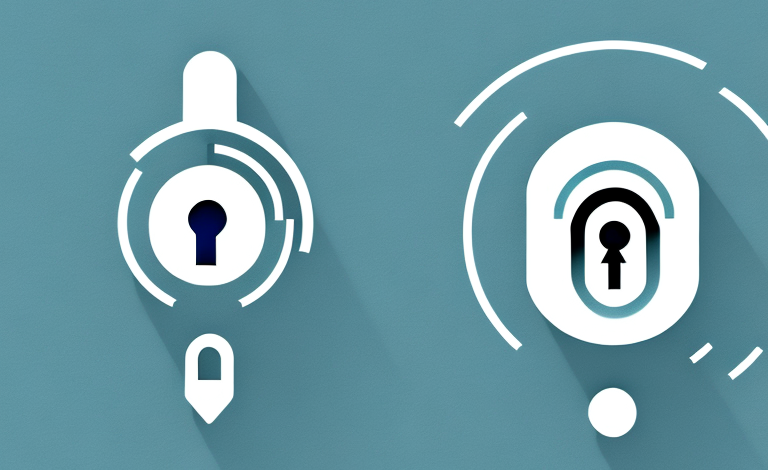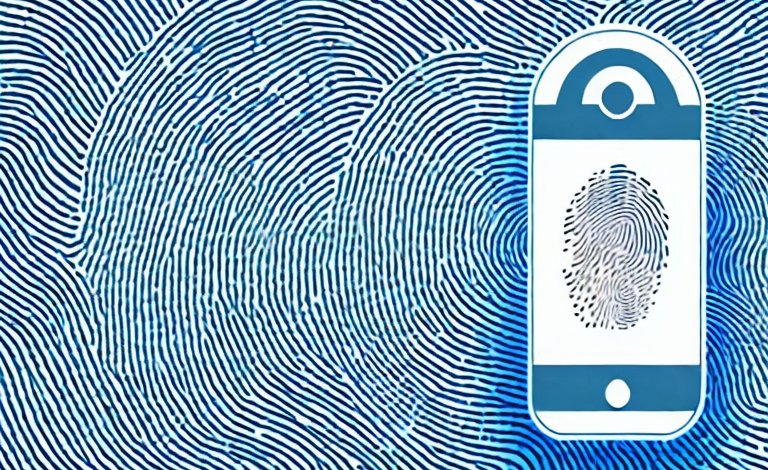The concept of smart locks has become increasingly popular in recent years. These locks boast advanced features that offer convenience, security, and even integration with other smart home systems. One feature that is often associated with smart locks is an alarm. The question is, do smart locks actually have alarms? In this article, we will explore the basics of smart locks, their features, and the different types of alarms available to them.
Understanding the Basics of Smart Locks
Smart locks are electronic locks that can be controlled remotely through a mobile app, enabling users to lock and unlock their doors from anywhere. In contrast to traditional locks, smart locks use wireless connectivity to communicate with devices like smartphones and home assistants. They are powered by batteries, which eliminates the need for wiring to connect them to the house’s electrical system.
One of the key benefits of smart locks is that they can be programmed to grant access to specific individuals at specific times. This is particularly useful for homeowners who rent out their properties on platforms like Airbnb. Instead of having to physically hand over keys to guests, hosts can simply grant them access to the property through the smart lock app. This also allows hosts to revoke access once the guest’s stay is over.
Another advantage of smart locks is that they can be integrated with other smart home devices, such as security cameras and doorbells. This means that homeowners can receive alerts and view live footage of who is entering and leaving their property, even when they are not at home. Some smart locks even have built-in cameras that can capture images of anyone who attempts to tamper with the lock.
What are the Features of Smart Locks?
Smart locks come with several features, some of which are specific to certain models or brands. Features may include keyless entry, automatic locking/unlocking, remote control, voice activation, and integration with home security systems. Some smart locks can be controlled using a keypad or fingerprint reader for added security.
In addition to these features, some smart locks also offer the ability to create temporary access codes for guests or service providers. This allows you to grant access to your home without having to physically give someone a key. Some smart locks also have a feature that sends notifications to your phone when someone enters or exits your home, providing an added layer of security and peace of mind.
Advantages of Smart Locks over Traditional Locks
Smart locks offer several advantages over traditional locks. Firstly, they allow for remote access and control, making it possible to grant access to others even when you are not home. Secondly, the absence of keys means that there is no risk of losing them or having them stolen, which can compromise the security of your home. Thirdly, smart locks can alert you in real-time when someone enters or exits your home, providing increased security and peace of mind.
Another advantage of smart locks is that they can be integrated with other smart home devices, such as security cameras and alarms. This means that if someone tries to break into your home, the smart lock can trigger the alarm and alert you and the authorities immediately. Additionally, some smart locks come with features such as voice control and fingerprint recognition, which provide even more convenience and security.
Finally, smart locks are also more customizable than traditional locks. With a smart lock, you can set different access levels for different people, such as temporary access for guests or limited access for children. You can also set schedules for when certain people can access your home, which can be especially useful for service providers or housekeepers. Overall, smart locks offer a range of benefits that make them a worthwhile investment for anyone looking to enhance the security and convenience of their home.
How do Smart Locks Work?
Smart locks work by using wireless technology to communicate with devices like smartphones and other smart home systems. They use Bluetooth or Wi-Fi to connect with the mobile app, which then allows users to lock and unlock their doors remotely. As mentioned earlier, smart locks are powered by batteries, which means that they can continue to function even when there is a power outage.
Smart locks also come with a variety of features that enhance their functionality. For instance, some smart locks have a feature that allows users to grant temporary access to guests or service providers. This means that users can give access to their homes to people like cleaners or delivery personnel without having to be physically present to open the door for them.
Another feature that smart locks have is the ability to send notifications to users when someone tries to tamper with the lock. This feature is particularly useful for people who live in areas with high crime rates or for those who want to keep an eye on who is entering their homes. With this feature, users can receive alerts on their smartphones whenever someone tries to break into their homes or when someone enters their homes without their permission.
Types of Smart Lock Alarms
There are several types of smart lock alarms available, depending on the model or brand. Some common types of alarms include sensors that detect when the door is opened or closed, alarms that sound when someone tries to tamper with the lock, and notifications that are sent to your mobile device when the lock is accessed. Some smart locks may also come with additional features such as sirens or strobe lights.
Another type of smart lock alarm is the geofencing feature. This feature uses your smartphone’s GPS to detect when you are approaching or leaving your home. When you are within a certain distance from your home, the smart lock will automatically unlock the door for you. Similarly, when you leave the geofenced area, the smart lock will automatically lock the door behind you. This feature is especially useful for those who frequently forget to lock their doors or for those who want to ensure that their home is always secure.
Benefits of Having an Alarm on your Smart Lock
Having an alarm on your smart lock offers several benefits. Firstly, it provides an additional layer of security that can deter burglars from attempting to enter your home. Secondly, an alarm can alert you in real-time when the lock is accessed, which can help you take immediate action when necessary. Finally, having an alarm on your smart lock can also provide peace of mind when you are away from home, knowing that your property is being monitored 24/7.
Another benefit of having an alarm on your smart lock is that it can be integrated with your home security system. This means that if the alarm is triggered, it can automatically alert your security company or the authorities, who can then respond quickly to the situation. This can be especially useful if you are away from home and unable to respond to the alarm yourself.
Additionally, some smart locks with alarms also come with features such as tamper detection and automatic locking. Tamper detection can detect if someone is trying to break into your lock and trigger the alarm, while automatic locking ensures that your door is always locked when you leave your home. These features can provide an extra layer of protection and convenience for you and your family.
How to Set Up and Configure Your Smart Lock Alarm
The process of setting up and configuring your smart lock alarm will vary depending on the model or brand you have. Generally, alarms can be configured through the mobile app that controls the smart lock. It is important to read the manufacturer’s instructions carefully and follow the recommended steps to ensure that the alarm is set up correctly.
Before setting up your smart lock alarm, it is important to ensure that your smart lock is properly installed and functioning correctly. This includes checking that the lock is securely attached to your door and that it can be locked and unlocked using the mobile app or keypad. If you encounter any issues with the lock, it is recommended to troubleshoot these before attempting to set up the alarm.
Once your smart lock is installed and functioning correctly, you can begin the process of setting up the alarm. This typically involves selecting the type of alarm you want to use, such as a sound alarm or a notification alarm, and configuring the settings to your preferences. You may also have the option to set up custom alerts for specific events, such as when the lock is opened or closed.
Troubleshooting Common Issues with Smart Lock Alarms
Smart lock alarms can sometimes experience issues, such as false alarms or difficulty in connecting to the mobile app. To troubleshoot these issues, it is often recommended to check the battery level, ensure that the lock is connected to Wi-Fi, and reset the lock if necessary. If these steps do not work, then it may be necessary to contact the manufacturer for further assistance.
Another common issue with smart lock alarms is the inability to lock or unlock the door remotely. This can be caused by a weak Wi-Fi signal or a malfunctioning mobile app. To resolve this issue, try moving the lock closer to the Wi-Fi router or resetting the mobile app. If the problem persists, contact the manufacturer for further assistance.
It is also important to note that smart lock alarms may not be compatible with all types of doors or locks. Before purchasing a smart lock alarm, make sure to check the compatibility with your door and lock type. If the lock is not compatible, it may not function properly or may cause damage to the door or lock.
Comparison between Different Smart Lock Brands and their Alarm Systems
There are several brands of smart locks available on the market, each with their own set of features and alarms. When comparing different smart lock brands, it is important to consider factors such as ease of use, reliability, and the type of alarms offered. Some popular smart lock brands include August, Yale, Schlage, and Kwikset.
Are Smart Lock Alarms Reliable?
Smart lock alarms are generally considered reliable when set up properly and configured correctly. However, like any technology, they may experience issues or false alarms, depending on the model or brand. It is important to choose a reputable brand and follow the manufacturer’s instructions carefully to ensure that the alarm is set up correctly.
Integration of Smart Lock Alarms with Home Security Systems
Smart lock alarms can be integrated with home security systems, providing additional layers of security and convenience. By connecting the smart lock to a security system, you can monitor activity around your home, receive notifications in real-time, and even control the lock remotely.
The Future of Smart Lock Alarm Technology
The future of smart lock alarms looks promising, with manufacturers continuously developing and improving their technology. Future advancements may include the use of artificial intelligence and machine learning to better detect unauthorized access, improved battery life, and even more intuitive mobile apps.
In conclusion, smart locks do have alarms, and there are various types of alarms that users can choose from depending on their needs and preferences. By combining the convenience of smart locks with the added security of an alarm, users can enjoy peace of mind knowing that their property is secure.



